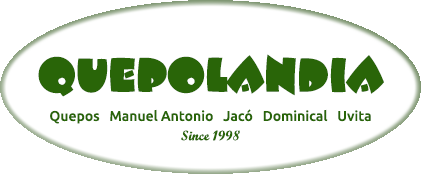Lots of stuff. Prepare yourself.
By Os
¿Todo bien gente? ¿Everything is ok people?
Last month we learned “Los Días de la Semana”, right? So, I suppose we should learn “Los Meses del Año”-“The Months of the Year” right now:
ENERO is the only one that doesn´t look very similar to the one in inglés. Check this out:
Enero = January * enero, enero, enero, enero.
Febrero = February * febrero, febrero, febrero.
Marzo = March * marzo, marzo, marzo, marzo.
Abril = April * abril, abril, abril, abril, abril, abril.
Mayo = May * mayo, mayo, mayo, mayo.
Junio = June * junio, junio, junio, junio, junio.
Julio = July * julio, julio, julio, julio, julio, julio.
Agosto = August * agosto, agosto, agosto.
Septiembre = September * septiembre, septiembre.
Octubre = October * octubre, octubre, octubre.
Noviembre = November * noviembre, noviembre.
Diciembre = December * diciembre, diciembre.
ENERO is the only one that doesn´t look quite the same as the one in inglés. ¡ENERO!
Like the días de la semana (days of the week), the meses del año (months of the year), do NOT need to be capitalized. Watch this:
Hoy es miércoles 2 de mayo de 2.012.
Hoy es mi cumpleaños.
Today is my birthday.
¡I`m serious! (Cervezas are welcome).
Ayer fue martes 1 (primero-first) de mayo de 2.012.
Ayer fue el Día del Trabajo.
Yesterday was the Day of the Work. (Labor Day).
Mañana va a ser jueves 3 de mayo de 2.012.
Mañana va a ser el cumpleaños de mi hermano.
Tomorrow is gonna be the birthday of my brother.
Pasado mañana será viernes 4 de mayo de 2.012.
Pasado mañana será el día de “La Feria”.
The day after tomorrow will be the day of “La Feria”.
Lots of stuff, eh?????
I suppose that you noticed that I said: “the birthday of my brother” and NOT “my brother´s b-day”. When you refer to possessions, the Spanish word order is reversed. ¡Think “backwards”!: The thing that he “owns” (his b-day) comes first, and then the “owner” (my brother).
The b-day OF my brother.
The cumpleaños OF my brother.
El cumpleaños OF my hermano.
El cumpleaños OF mi hermano.
El cumpleaños DE mi hermano.
The car OF my sister.
The carro OF my sister.
El carro OF my hermana.
El carro OF mi hermana.
El carro DE mi hermana.
Of = De * de, de, de, de, de, de, de, de, de, de, de.
My = Mi / Mis (plural).
Mi hermano. / MiS hermanoS.
¡Match the pluralsss!
Ok guys, so far so good, right? Love is in the air, right? NO, it is not.
¿Did you see the words that are underlined (es – fue – será – va a ser) when we were doing the “dates”? ¿Do you know what they are?
They are “Action Words” (just for the record the words that express actions are called VERBS).
¿Do you remember one of the reasons I named this column “SPANISH SUCKS”? Because-Porque I noticed how many action words (verbos) and different endings (conjugaciones) we need to know to make it perfect; and bla, bla, bla…
Well, sooner or later we will have to talk and try to get a decent understanding of them.
Prepare yourselves guys. VERBOS are coming.
OS is a certified and experienced Spanish teacher. He gives One on One, Group, and Immersion Classes. He also offers a “Travel and Learn” program tailored for persons renewing their tourist visas.
¿Lost in Translation? ESPAÑOL
osbe21again@yahoo.es / (506) 88-222-936

